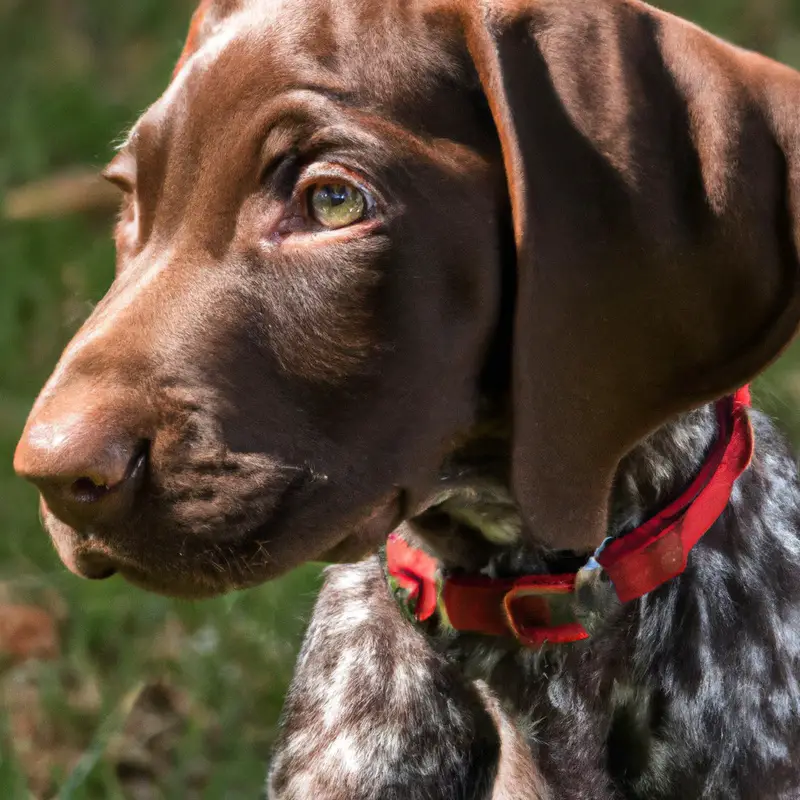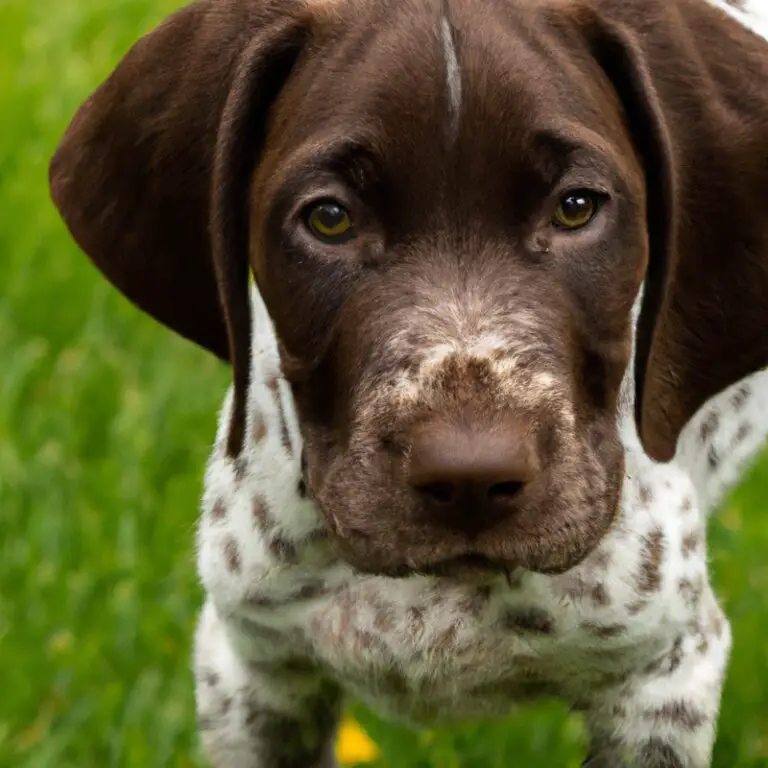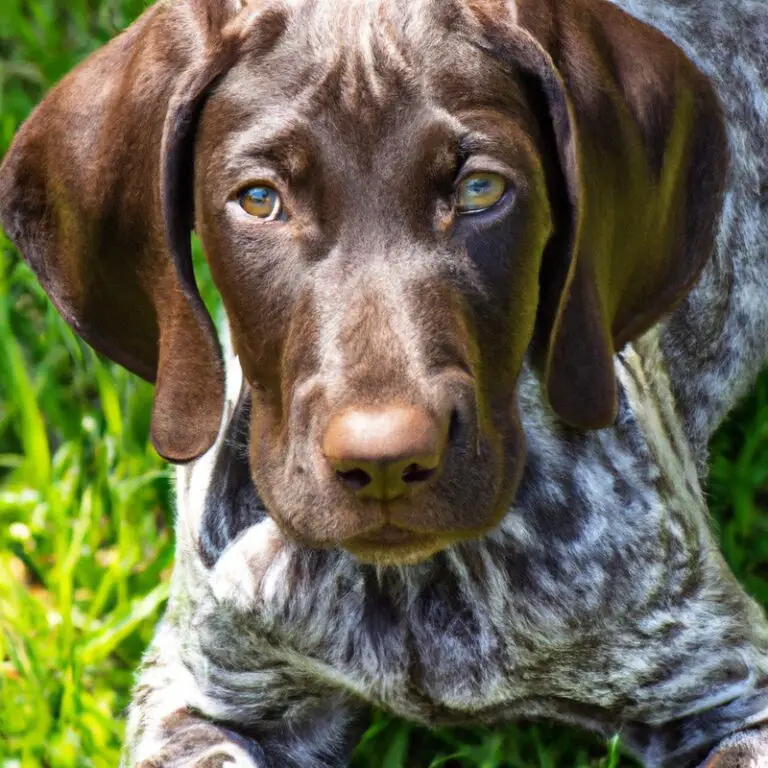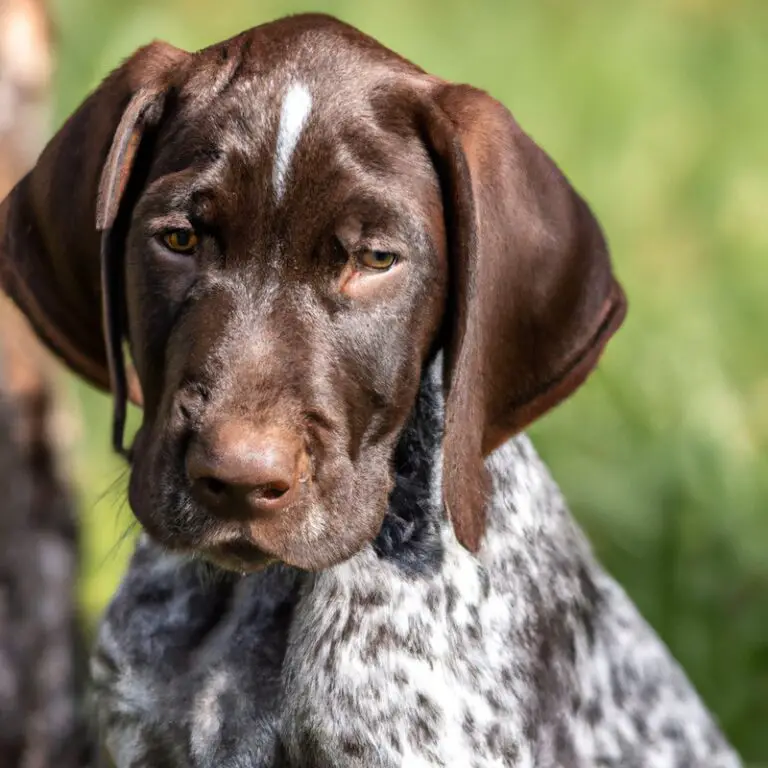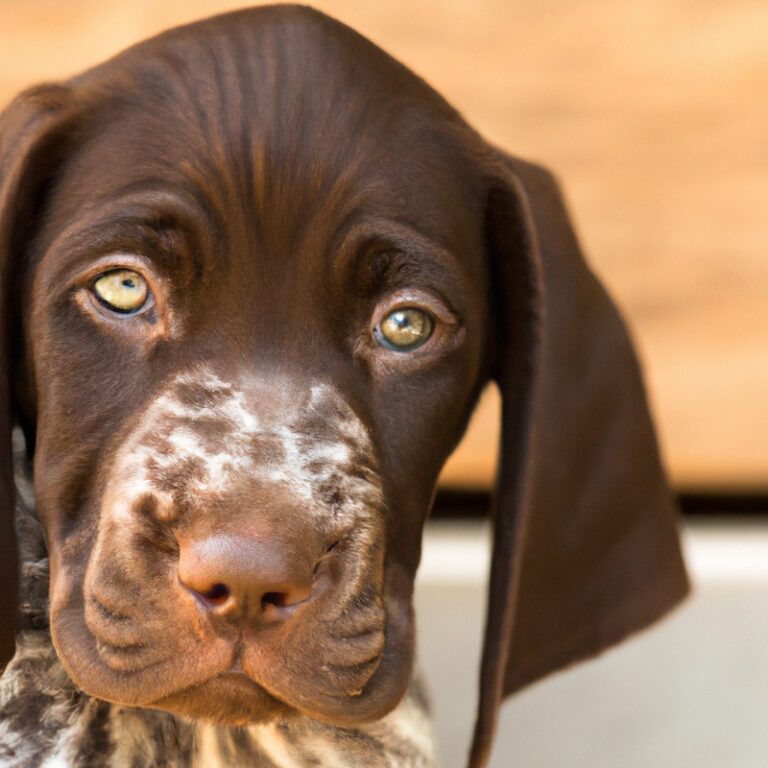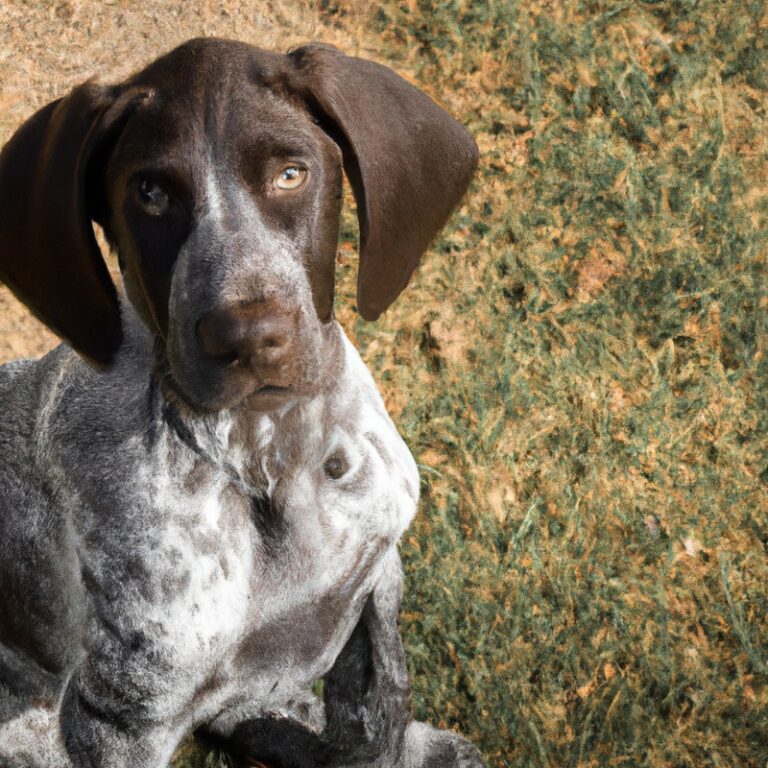How Do I Prevent My German Shorthaired Pointer From Chewing On Household Items?
Key Takeaways:
- Provide plenty of appropriate chew toys to redirect your dog’s chewing behavior.
- Ensure your German Shorthaired Pointer receives sufficient physical exercise and mental stimulation to prevent boredom.
- Use bitter or unpleasant tasting deterrents on items you don’t want your dog to chew.
- Consider crate training or using baby gates to limit access to areas where chewing is a problem.
Are you tired of discovering your favorite shoes chewed to pieces or finding remnants of your furniture strewn about your home? If you have a German Shorthaired Pointer, you know firsthand the struggle of dealing with their insatiable chewing habits.
But fear not! As an expert in canine behavior, I’m here to help you navigate the maze of preventing your furry friend from turning your prized possessions into chew toys.
In this article, I will provide you with essential steps, useful tips, and proven techniques to put an end to your German Shorthaired Pointer’s destructive chewing behavior. Let’s reclaim your household items and restore peace to your home!
| Prevention Measures | |
|---|---|
| 1 | Provide appropriate chew toys |
| 2 | Keep valuable items out of reach |
| 3 | Supervise and redirect behavior |
| 4 | Use deterrent sprays or bitter-tasting substances |
| 5 | Ensure plenty of physical and mental exercise |
| 6 | Consider crate training |
| 7 | Address underlying anxiety or boredom |
| 8 | Seek professional help if needed |
Understanding the Behavioral Causes of Chewing in German Shorthaired Pointers
Why do German Shorthaired Pointers Chew on Household Items?
German Shorthaired Pointers may chew on household items for a variety of reasons. Here are a few possible explanations:
- Teething: Just like puppies of other breeds, German Shorthaired Pointers go through a teething phase. Chewing helps to alleviate discomfort and satisfy their urge to chew.
- Boredom: These active dogs need mental and physical stimulation. If they don’t get enough exercise and mental enrichment, they may resort to chewing as a way to relieve boredom.
- Anxiety or stress: German Shorthaired Pointers are known to be sensitive dogs. They may chew on household items when they feel anxious, nervous, or stressed. It can provide them with a sense of comfort or act as a coping mechanism.
- Lack of training or boundaries: If your German Shorthaired Pointer hasn’t been taught what is acceptable to chew and what isn’t, they may mistakenly chew on household items. Proper training and setting clear boundaries can help address this issue.
The Importance of Identifying the Root Cause of Chewing Behavior
Identifying the root cause of chewing behavior in your German Shorthaired Pointer is essential for effectively addressing the issue. It’s crucial to understand that chewing is a natural behavior for dogs, especially for puppies who are exploring the world around them with their mouths.
However, excessive chewing can be destructive and costly.
By figuring out why your dog is chewing, you can develop a targeted approach to prevent it. It could be due to teething, boredom, anxiety, or even a lack of exercise.
Identifying the underlying cause will guide you in finding appropriate solutions and preventing your furry friend from chewing on household items.
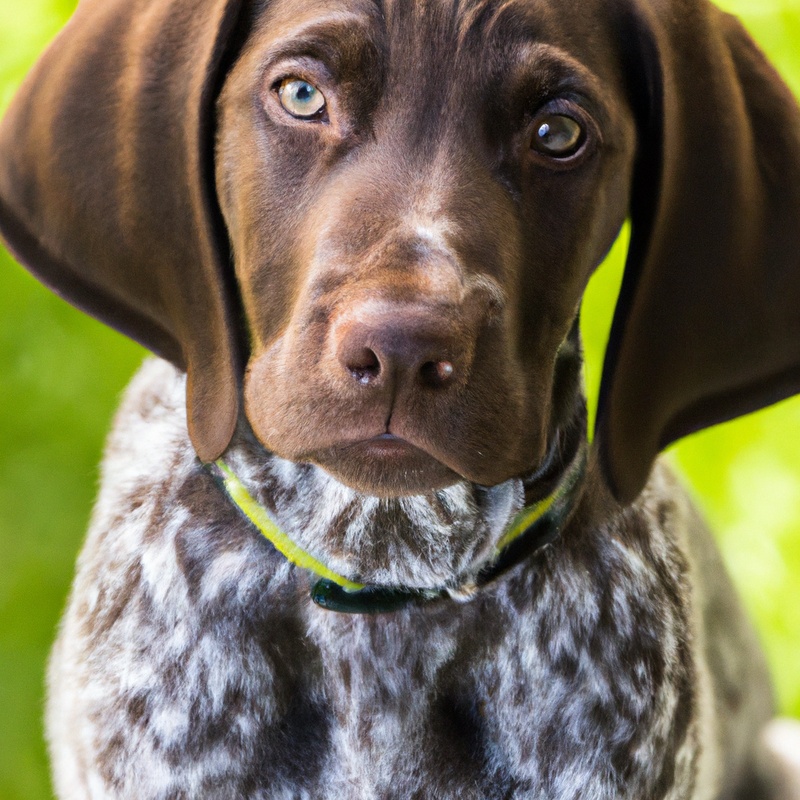
Common Triggers for Chewing in German Shorthaired Pointers
German Shorthaired Pointers have a natural instinct to chew, just like any other dog. However, certain triggers can increase their chewing behavior.
Here are some common triggers to be aware of:
- Boredom: German Shorthaired Pointers are active and intelligent breeds. When they don’t receive enough mental and physical stimulation, they may resort to chewing as a way to keep themselves occupied.
- Teething: Like puppies, German Shorthaired Pointers go through a teething phase. During this time, they may chew more frequently to alleviate discomfort in their gums. Providing appropriate chew toys can help redirect their chewing behavior.
- Separation Anxiety: These dogs form strong bonds with their owners and can become anxious when left alone. Chewing can be a way for them to cope with the stress of being separated from their loved ones.
- Lack of exercise: German Shorthaired Pointers require regular exercise to burn off their energy. When they don’t get enough physical activity, they may resort to chewing as a way to release pent-up energy.
Understanding these common triggers can help you address and prevent chewing behavior in your German Shorthaired Pointer. Remember to provide plenty of mental and physical stimulation, offer appropriate chew toys, and address any separation anxiety they may experience.
Essential Steps to Prevent Chewing in German Shorthaired Pointers
Providing Sufficient Physical and Mental Stimulation
Providing sufficient physical and mental stimulation is key to preventing chewing in German Shorthaired Pointers. These active dogs have high energy levels and a need for stimulation.
Here are a few ways to keep them occupied:
- Regular exercise: German Shorthaired Pointers thrive on physical activity. Make sure they get plenty of exercise through daily walks, runs, or play sessions. This helps them release pent-up energy and reduces the urge to chew.
- Interactive toys: Provide your pup with a variety of interactive toys that engage their mind and provide mental stimulation. Puzzle toys, treat-dispensing toys, and chew toys can help redirect their chewing behavior onto appropriate items.
- Training and obedience: German Shorthaired Pointers are intelligent dogs that enjoy learning. Invest time in training sessions to keep their minds engaged. Teaching them commands and tricks not only mentally exhausts them but also strengthens the bond between you and your furry friend.
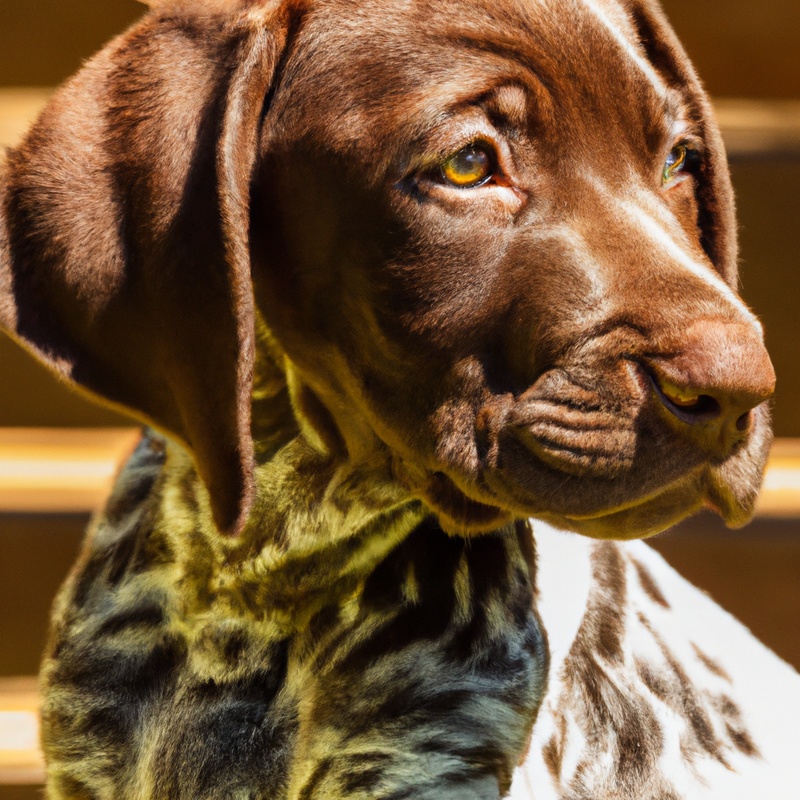
Ensuring a Balanced Diet and Proper Nutrition
Ensuring a balanced diet and providing proper nutrition is crucial for preventing your German Shorthaired Pointer from chewing on household items. Here are some tips to keep in mind:
- Feed a high-quality dog food: Look for a dog food that is specifically formulated for your dog’s breed and age. It should contain a good balance of protein, carbohydrates, and fats to meet their nutritional needs.
- Avoid table scraps: While it can be tempting to share your food with your furry friend, it’s best to avoid giving them table scraps. Human food can be high in calories, unhealthy fats, and spices that can upset their stomachs.
- Provide appropriate chew toys: Make sure your German Shorthaired Pointer has plenty of appropriate chew toys to keep them occupied. This will redirect their chewing behavior onto something more acceptable.
- Monitor portion sizes: Be mindful of how much you are feeding your dog. Overfeeding can lead to weight gain and boredom, which can contribute to chewing behavior.
- Consider consulting a veterinarian: If you’re unsure about the best diet for your German Shorthaired Pointer, consider consulting with a veterinarian. They can provide personalized recommendations based on your dog’s specific needs and health conditions.
Using Chew Toys and Interactive Puzzles to Redirect Chewing Behavior
Using chew toys and interactive puzzles can be a great way to redirect your German Shorthaired Pointer’s chewing behavior. First and foremost, make sure to choose appropriate chew toys that are durable and safe for your dog.
Look for ones made of sturdy materials, like rubber or nylon, that can withstand strong chewing.
Introduce the chew toys to your German Shorthaired Pointer and encourage them to chew on these toys instead of household items. You can do this by using positive reinforcement, such as praising and rewarding your dog when they chew on the toys.
Interactive puzzle toys are another excellent option to redirect your dog’s chewing behavior.
These toys require your dog to work for their treats or food, keeping them mentally stimulated and focused. Fill the puzzle toys with treats or kibble to engage your dog’s attention and satisfy their chewing instinct.
Remember to supervise your dog when they are playing with chew toys or puzzle toys to ensure they are using them appropriately and not destroying them.
Rotate the toys regularly to keep them interesting and prevent boredom. Incorporating chew toys and interactive puzzles into your German Shorthaired Pointer’s routine can help redirect their chewing behavior and provide them with a healthy outlet for their natural instincts.
So, give it a try and see how it benefits your furry friend!
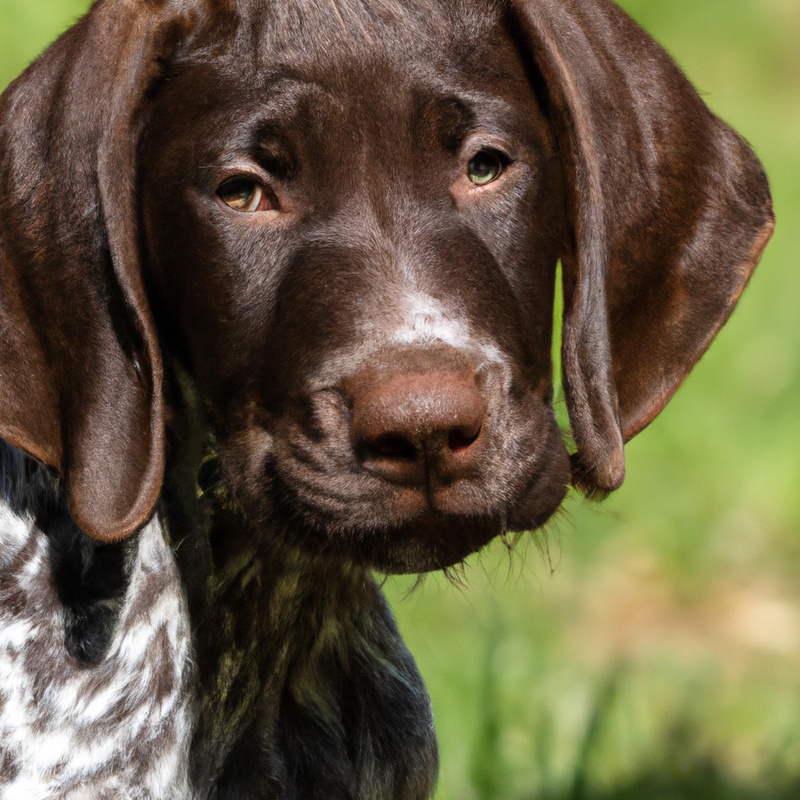
Positive Reinforcement Training Techniques for Chewing Prevention
Positive Reinforcement Training Techniques for Chewing Prevention To prevent chewing in your German Shorthaired Pointer, positive reinforcement training techniques can be highly effective. Here are a few simple steps to follow:
- Redirect their attention: When you catch your dog in the act of chewing on an inappropriate item, calmly redirect their attention to an appropriate chew toy or bone. Reward and praise them when they engage with the correct item.
- Make chew toys more appealing: Ensure your dog has a variety of appropriate chew toys and bones available. You can make them more enticing by smearing a small amount of peanut butter or other dog-safe spreads on them.
- Consistency is key: Be consistent in your training and reinforcement. Reward your dog every time they choose to chew an acceptable item instead of household items. This helps them understand what behavior is expected from them.
- Supervise and manage their environment: Keep an eye on your dog and limit their access to areas where they may be tempted to chew on household items. Crate training when you are unable to supervise can also be helpful.
Creating a Safe Environment to Minimize Chewing
Puppy-Proofing Your Home and Removing Temptations
Puppy-Proofing Your Home and Removing Temptations To prevent your German Shorthaired Pointer from chewing on household items, puppy-proofing your home is key. Here’s how you can do it:
- Keep valuable and dangerous items out of reach: Put away shoes, clothes, electronics, and other valuable items that may tempt your pup. Also, keep potentially hazardous items like cleaning supplies or cords safely hidden or tucked away.
- Use barriers and gates: Set up baby gates or use playpens to restrict access to certain areas of your home. This way, you can control your pup’s movement and prevent them from getting into trouble or finding things to chew on.
- Keep the floor clear: Pick up anything small or enticing from the floor, such as small toys, socks, or loose cables. By removing these temptations, you minimize the risk of your pup establishing a chewing habit.
- Provide appropriate chew toys: Make sure to have a variety of chew toys specifically designed for puppies. These toys can help satisfy your pup’s natural urge to chew while redirecting their attention away from household items.
Using Barriers and Gates to Restrict Access
One effective way to prevent your German Shorthaired Pointer from chewing on household items is by using barriers and gates to restrict their access. This simple solution creates a physical boundary, keeping your pup away from areas where they might be tempted to chew.
Place gates at the entrance of rooms or areas that you want to keep your dog out of, such as the living room or bedrooms.
This way, you can prevent them from reaching your furniture or personal belongings. Another option is to use baby gates or pet fences to create a designated safe area for your dog.
This can be a specific room or a confined space where you provide them with toys, chew treats, and comfy bedding.
With limited access to other parts of the house, they are less likely to be tempted to chew on things they shouldn’t. Remember to choose sturdy barriers and gates that are appropriate for your dog’s size and activity level.
It’s also important to supervise your dog when they are in the restricted area to ensure their safety and well-being.
Crating and Confinement Strategies to Limit Chewing Opportunities
Crating and confinement can be effective strategies to limit your German Shorthaired Pointer’s chewing opportunities. So, here’s what you need to know:
- Introduce a proper crate: Get a crate that is spacious enough for your dog to stand, turn around, and lie down comfortably. Make it feel like a cozy den by adding a comfortable bed or blanket inside.
- Use positive associations: Associate the crate with positive experiences by giving treats or feeding meals inside. Make it a safe and pleasant place where your dog feels secure.
- Gradually increase crate time: Start with short periods of confinement, gradually increasing the duration, so your dog gets used to being in the crate without feeling anxious or stressed.
- Provide stimulating toys: To keep your German Shorthaired Pointer entertained and engaged while in the crate, provide chew toys and puzzle toys. These can redirect their chewing behavior and keep them occupied.
- Rotate toys: Keep your dog interested by rotating their toys. This prevents boredom and decreases the likelihood of them resorting to chewing on household items.
- Supervised confinement: When you can’t directly supervise your dog, use baby gates or pet playpens to limit their access to certain areas of the house. This way, you can prevent them from reaching household items that they may be tempted to chew.
- Consider dog-proofing: It’s also a good idea to dog-proof your home by picking up any items that may be enticing for your dog to chew on. Keep electrical cords out of reach and store shoes, clothes, and other personal belongings securely.
Managing Separation Anxiety and Boredom-Related Chewing
Tips for Addressing Separation Anxiety in German Shorthaired Pointers
Addressing separation anxiety in German Shorthaired Pointers can help prevent destructive behavior such as chewing on household items. Here are some tips to help alleviate separation anxiety in your pup:
- Gradual Departures: Practice leaving your dog alone for short periods, gradually increasing the time over several weeks. This will help them get accustomed to your absence.
- Create a Safe Space: Set up a comfortable area for your dog with their bed, toys, and familiar scents. This can help them feel secure when you’re not around.
- Mental Stimulation: Provide interactive toys, puzzle feeders, or treat-dispensing toys to keep your dog mentally challenged and engaged during alone time.
- Exercise: Ensure your dog gets plenty of physical exercise before you leave. A tired dog is less likely to become anxious and resort to chewing.
- Calming Music or White Noise: Playing soothing music or white noise in the background can help mask outside noises and create a calming environment.
- Seek Professional Help if Needed: If your GSP’s separation anxiety persists or worsens, consider consulting with a professional dog behaviorist or trainer for additional guidance.
Strategies to Alleviate Boredom and Prevent Destructive Chewing
Strategies to alleviate boredom and prevent destructive chewing revolve around keeping your German Shorthaired Pointer mentally and physically engaged. Here are some tips:
- Provide plenty of exercise: Regular walks, runs, and playtime sessions with your dog can tire them out, reducing boredom and the urge to chew. Aim for at least 30 minutes to 1 hour of exercise every day.
- Use interactive toys: Puzzle toys, treat-dispensing toys, and chew toys can keep your dog entertained and mentally stimulated. These toys provide a productive outlet for their chewing instincts.
- Rotate toys: Keep your dog interested by rotating their toys. Introduce new ones regularly while temporarily taking away others. This way, they won’t get bored with the same toys and are less likely to chew on household items.
- Create a dog-friendly environment: Designate a space specifically for your dog, equipped with their bed, toys, and water. This way, they have a safe place to retreat to when they are feeling anxious or bored.
- Provide mental stimulation: Engage your dog’s mind by incorporating training sessions, obedience exercises, or even fun games like hide-and-seek. Mental challenges can tire them out and reduce boredom.
Additional Tips to Stop Chewing Behavior in German Shorthaired Pointers
Providing Appropriate Chewing Alternatives
Providing appropriate chewing alternatives is a key aspect in preventing your German Shorthaired Pointer from chewing on household items. First and foremost, make sure to provide your dog with a variety of safe and durable chew toys.
Look for toys made of high-quality materials such as rubber or nylon.
Additionally, consider interactive puzzle toys that can keep your dog mentally stimulated as they chew. It’s also important to rotate the toys regularly to keep your dog interested.
Lastly, you can freeze toys or use treat-dispensing toys to make them more enticing for your dog.
These alternatives will help redirect their chewing behavior to more suitable objects.
Seeking Professional Help When Chewing Behavior Persists
Sometimes, despite your best efforts, your German Shorthaired Pointer’s chewing behavior may persist. When this happens, seeking professional help is a good idea.
A professional dog trainer or a veterinary behaviorist can assess your dog’s behavior and provide expert guidance and solutions.
They may help address any underlying issues that are causing the chewing behavior, and develop a customized training plan to modify it. It’s important to consult with a professional who has experience working with dogs and can provide you with the support you need to help your dog overcome their chewing habits.
Final Verdict
Preventing chewing behavior in German Shorthaired Pointers requires understanding the root causes and implementing effective strategies. By identifying triggers such as boredom or separation anxiety, providing mental and physical stimulation, and using positive reinforcement training techniques, you can redirect your dog’s chewing behavior.
Creating a safe environment through puppy-proofing and using barriers or crates can also limit opportunities for destructive chewing.
Remember to provide appropriate chewing alternatives and seek professional help if the behavior persists. With patience, consistency, and a well-rounded approach, you can prevent your German Shorthaired Pointer from chewing on household items and create a harmonious and stress-free environment for both you and your furry friend.

